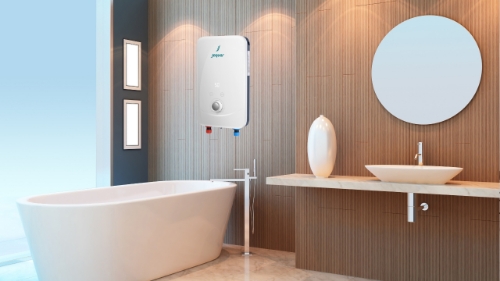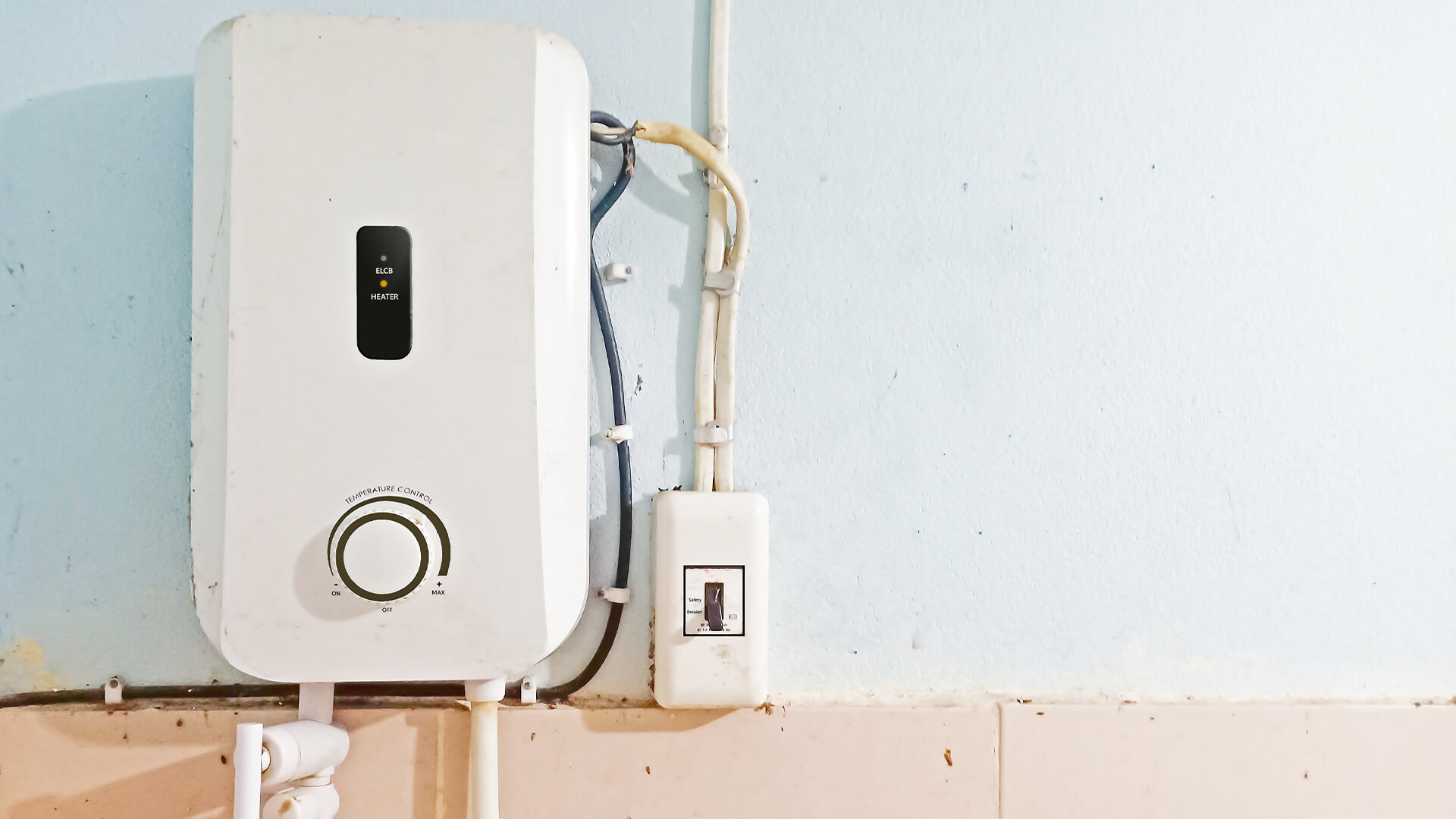Important Benefits Of Selecting Tankless Water Heaters
Important Benefits Of Selecting Tankless Water Heaters
Blog Article
They are making a number of good points on the subject of Unveiling the Hot Trend: The Benefits of Tankless Water as a whole in this article further down.

In a world where benefit and performance preponderate, it's not a surprise that house owners are regularly looking for smarter ways to handle their home's power usage and comfort. One development that has steadily gotten appeal is the tankless water heater. However just what makes these systems stand apart from the standard tank-based versions a lot of us grew up with? Let's dive in and check out the advantages of tankless hot water heater, assisting you make a decision if it's time to make the button in your house.
Intro
Image this: you enter the shower after a lengthy day, expecting a calming cascade of warm water, just to be greeted by icy droplets due to the fact that the last person utilized it all up. Noise acquainted? Traditional water heaters keep a fixed amount of warm water, suggesting you go to the grace of that tank's supply. Tankless systems, on the other hand, warmth water as needed. Say goodbye to going out mid-shower, say goodbye to fumbling with timetables simply to make certain warm water is readily available.
Recognizing Tankless Water Heaters
What Are Tankless Hot Water Heater?
Tankless water heaters, in some cases known as on-demand or instantaneous water heaters, provide hot water only as it's required. Rather than saving gallons of pre-heated water, these units kick right into activity the moment you switch on the faucet. Water passes through a warm exchanger, heating up in real-time, meaning you obtain a continuous flow of warm water without the demand for a large storage tank resting idly by.
How Do They Differ from Traditional Solutions?
Traditional heaters hold a storage tank of warm water, using energy to keep that tank at a constant temperature level. Tankless systems remove the standing supply, cutting down on wasted energy and the bulky footprint of a large cylinder. Basically, you're updating from a "stockpile" state of mind to a "made-to-order" technique.
Usual Types of Tankless Systems
Tankless hot water heater typically are available in 2 ranges: gas and electrical. Gas versions have a tendency to provide higher circulation prices, ideal for larger houses, while electrical models usually offer smaller homes and are generally easier to mount. In addition, some systems are developed for point-of-use (serving one component) while others can handle the whole home's hot water needs.
Secret Benefits of Tankless Water Heaters
1. Limitless Hot Water Supply
Ever needed to schedule showers so everybody obtains their fair share of hot water? With tankless, that comes to be a thing of the past. As long as the heating unit's circulation capability isn't gone beyond, you can take back-to-back showers without becoming a popsicle.
2. Power Effectiveness and Price Savings
Say goodbye to warming a titan container's worth of water and keeping it toasty throughout the day. Tankless heating systems reduce standby energy losses, which can lower utility expenses. While the preliminary expense may be higher, the long-term savings commonly validate the investment.
3. Space-Saving Style
If your home is short on storage, removing the cumbersome container maximizes useful area. Tankless units are portable and can typically be mounted on wall surfaces, concealed in corners, or installed in limited utility storage rooms without hogging the whole room.
4. Longer Lifespan
A properly maintained tankless hot water heater can outlast its tank-based cousin. Standard tanks might last 10-15 years, while tankless versions can maintain downing along for two decades or more, making them a strong financial investment with time.
5. Improved Water Quality
Keeping water in a container can occasionally bring about sediment buildup or a slightly "off" preference. With tankless systems, fresh water is heated right away, minimizing the chances of debris build-up and potentially offering cleaner-tasting water.
Factors to consider Prior To Switching
Though the benefits are engaging, it's important to think about a couple of elements before totally devoting.
Initial Investment Expenses
Tankless heaters commonly come with a higher in advance price tag. Between the device itself and potential installment adjustments, the first price might give you sticker shock. However keep in mind to watch it as a long-term financial investment.
Installation Demands
Depending on your home's facilities, you could require added electrical capacity or gas line upgrades. Ensure you recognize the installment demands and seek advice from a professional to avoid surprises.
Examining Your Home's Water Use Patterns
If your home all at once makes use of several components with high hot water need, make sure the system's circulation price meets your requirements. Understanding your use patterns helps you choose the ideal dimension and sort of tankless heating system.
Maintenance and Care Tips
Tankless systems are fairly reduced upkeep, however they aren't set-it-and-forget-it home appliances.
Regular Cleansing and Descaling
Difficult water minerals can build up in the warmth exchanger, affecting performance. Routine descaling (frequently recommended annually) maintains the unit performing at peak performance.
Yearly Expert Inspections
A yearly checkup from an expert makes certain minor problems are captured early. They'll assess the unit's performance, seek leaks, and help preserve ideal efficiency.
Guaranteeing Appropriate Air Flow
For gas versions, correct air flow is necessary to securely eliminate exhaust gases. Make certain venting systems are clean and appropriately mounted to prevent any prospective safety and security hazards.
Comparing Different Brands and Models
Not all tankless water heaters are developed equal.
Researching Dependable Manufacturers
Try to find trustworthy brand names with a history of creating quality devices. A reliable maker usually supplies better client assistance and longer guarantees.
Reviewing Evaluations and Customer Feedback
Individual reviews and comments from next-door neighbors or pals that have gone tankless can supply important understandings. Occasionally, real-life experiences can be much more informing than advertising and marketing sales brochures.
Setup: DIY or Professional?
While some home owners enjoy tackling tasks themselves, tankless installment might not be the most effective time to break out the tool kit.
Benefits and drawbacks of Do It Yourself Installment
A DIY mount can save cash, yet it comes with dangers. Incorrect installment can cause inefficiency or safety and security concerns. If you come in handy and have experience, it may be practical-- however proceed with caution.
When to Call a Professional Plumbing
For most, calling a professional guarantees every little thing's done correctly. A specialist plumbing recognizes local codes, sizing demands, and venting criteria, decreasing the danger of problems.
Maximizing Efficiency
You have actually bought a tankless unit-- now maximize its effectiveness.
Ideal Temperature Level Settings
Lots of people establish their devices in between 120-140 F. Readjusting the temperature can boost convenience and cost savings. Experiment to discover a pleasant spot that does not squander power.
Coupling With Low-Flow Fixtures
Wish to stretch your system's capacities? Take into consideration mounting low-flow showerheads and taps. They decrease water use, enabling your tankless system to provide a stable stream of hot water without stressing.
Environmental Influence
Tankless water heaters align with greener living objectives.
Decreased Carbon Impact
By using much less power and just heating water as needed, tankless systems can decrease your home's carbon footprint, decreasing your ecological influence.
Saving Natural Resources
Much less power consumption and less squandered hot water equate right into less natural resources being utilized, an ecological win-win.
That Profits The Majority Of from Tankless Heating units?
The beauty of tankless heating systems is that they can match a selection of homes.
Huge Households vs. Solitary Owners
Big family members may enjoy the endless hot water supply, while solitary owners value the energy savings from not warming a whole storage tank for just someone's early morning shower.
Homeowners with Minimal Area
If your home is short on square footage, shedding the large tank frees up space for other basics-- or perhaps simply a lot more elbow room.
Eco-Conscious Consumers
Going tankless aligns with environmentally friendly worths, ensuring you're not losing energy or resources.
Future Fads in Tankless Water Heaters
The globe of home devices is ever-evolving, and tankless hot water heater are no exemption.
Smart Home Assimilation
Visualize readjusting your water heater's temperature level via an application or receiving maintenance signals on your phone. As smart home tech breakthroughs, we'll see even more connection and convenience.
Innovations in Innovation
R&D is continuously enhancing heat exchangers, making units much more efficient and durable. Future models could be even quieter, more portable, and far better fit for varying climates.
Conclusion
Choosing a tankless hot water heater is greater than simply updating your home's warm water system; it's investing in long-term comfort, energy effectiveness, and a greener way of life. By considering your house's water use, being mindful of installment demands, and committing to normal maintenance, you can take pleasure in a consistent stream of hot water without the luggage of a cumbersome storage tank. As technology develops, you can look forward to even smarter, much more effective tankless solutions that not just make your life simpler yet additionally benefit the earth.
Pros and Cons of Tankless Water Heaters
Tankless Water Heater Pros
Saves Energy: Simply put, you re spending less energy to create hot water, so your total carbon footprint goes down, not to mention your bills. Lasts Longer Than Storage Tanks: Storage tank units need to be replaced every 15 years or so. But tankless units? They can last for 30 years before they give out on you. Constant Hot Water: Need to take a shower and don t want the water running cold? Awesome it won t. The water will stay hot the entire time because it creates hot water on demand. Saves You Money: Less water usage equals less money. Beyond that, you re not paying to keep water hot 24/7. Those savings add up quickly. Better for the Environment: Less water waste is better for everyone. It saves you money, but it s also environmentally conscious at the same time. Tankless Water Heater Cons
It Can Take a Minute: Depending on your specific unit and its placement, it can take anywhere from 10 seconds to 2 minutes to fully heat up. Because there s no storage tank, it heats water as you need it. Upfront Purchase Price: While we talked about their longevity, there s sticker shock when you look at brand-new tankless units to install. It pays for itself, but it s still a big chunk of change at first. Has its Limits: If you run multiple appliances at once, such as the dishwasher, washing machine, and maybe you take a shower at the same time, there might not be enough hot water. https://www.airsouthnow.com/blog/water-heater-service/pros-and-cons-of-tankless-water-heaters/

We were shown that article on through a friend on our other website. If you enjoyed our page if you please do not forget to share it. Thanks a lot for being here. Come back soon.
Book Your Installation Report this page